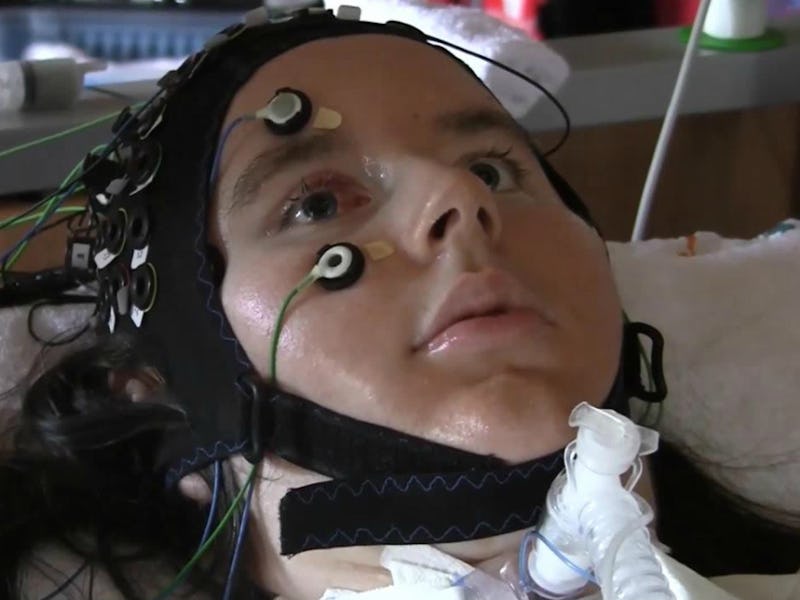Mind-Reading Device Lets Paralyzed People Say if They Want to Live
Three patients with Lou Gehrig's disease responded that they "love to live."

Lou Gehrig’s disease, or amyotrophic lateral sclerosis, is one of the most terrifying, debilitating illnesses out there. People who have the disease often suffer from “locked-in syndrome” — almost complete paralysis. These patients can’t move anything but their eyes, and some eventually lose the ability to blink as well. Communication is nearly impossible, but breakthrough research in Europe might change that. Scientists have created a device with a brain-computer interface that allows patients to respond to questions using just their thoughts — and they’re being asked whether or not they want to keep on living.
MIT Technology Review reports neuroscientist Niels Birbaumer created a mind-reading device, which fits over a patient’s head like a swimming cap. It then measures blood flow and electrical waves in the brain using near-infrared spectroscopy.
Birbaumer, who now operates out of Geneva’s Wyss Center for Bio and Neuroengineering, worked with a team to ask four patients a series of yes or no statements over the course of 10 days to get a sense for what the readings the device gave them meant. They asked true or false questions like “Paris is the capital of Germany,” and as the patients thought “yes” or “no,” the device was able to correctly interpret their thoughts 70 percent of the time — which researchers say was good.
They asked three of the patients to respond yes or no to the statement “I love to live.” All three thought “yes,” according to the brain-computer interface. The fourth, a 23-year-old, wasn’t asked because her parents were worried about her emotional state.
Birbaumer says the family members of all the patients were relieved to be able to communicate with their loved ones after years of total silence, essentially, but he hopes to make the device even more accurate and complex, perhaps working so the device can register a full alphabet of mental responses instead of just “yes” or “no.”
“These positive results could indicate the first step towards abolition of complete locked-in states, at least for ALS,” Birbaumer’s study in the journal PLOS Biology reads.